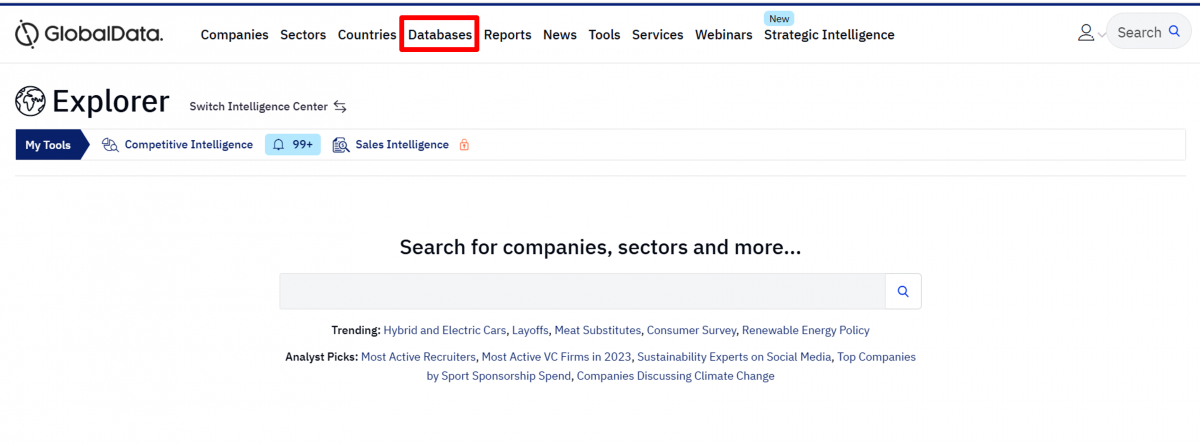How do I... - Tuesday 18 February 2025
Our highlights to help you in your researches
4 types of Highlights to help you:
| Write your thesis | Good to know |
|---|---|
Rate this content
How to find... - Tuesday 18 February 2025
Find job opportunities with GlobalData Explorer

GlobalData Explorer (GDX) is a powerful set of databases containing information on markets, companies, countries and products. You can use it in two ways: either by typing keywords into the search bar on the home page to find different types of information on a subject, or by selecting a particular database to find a specific type of information. We will develop this second method below in order to find job offers.
To find job offers abroad in a specific sector, you can quickly access a detailed analysis of the job market via the Job Analytics database on the GlobalData Explorer platform. To access it, click on the ‘Databases’ tab, and choose Job Analytics.
...
Read MoreRate this content
How to find... - Tuesday 17 December 2024
Finding market shares with GlobalData Explorer

GlobalData Explorer (GDX) is a powerful set of databases containing information on markets, companies, countries and products. You can use it in two ways: either by typing keywords into the search bar on the home page to find different types of information on a subject, or by selecting a particular database to find a specific type of information. We will develop this second method below.
For market share research on an economic sector, on companies or on specific products, go to the ‘Databases’ tab in GlobalData Explorer :

Among the resources accessible via ‘...
Read MoreRate this content
Comment faire... - Friday 23 August 2024
Patent search

Economic actors participate in scientific and technical invention, which is reflected in the publication of patents. This is a legal obligation, in order to benefit from the intellectual protection afforded to innovative products by patents. Here, we'll look at how to search for patents with the aim of finding out more about economic players, rather than as potential patentees.
In French law, according to article L611-10 of the Code de la Propriété Intellectuelle : ”Are patentable, in all fields of technology, new inventions involving an inventive step and capable of industrial application.”
Most patent information is freely available on the Internet, as part of the government's open data policy. A...
Read MoreRate this content
How do I... - Tuesday 26 September 2023
Searching for information with AI (Part 2): conversational agents

(Part 1: recommendations and search engines)
Coming to the spotlight at the end of 2022 with the general public release of ChatGPT3.5, then 4 in spring 2023, conversational agents are tools based on the analysis of large corpora of documents and statistical probabilities for text generation (GPT stands for Generative Pre-trained Transformer). The term generative AI is used more generally, particularly for content other than text: computer code, mathematical formulas, images, videos, etc.
Given the tool's versatility in processing text, it can be used at "every stage of the intelligence process, from identifying needs, to sourcing, to analysis." For example, through semantic analysis, the tool can summarize one or more texts and extract the key ideas to ...
Read More



Comment this content 0 comments